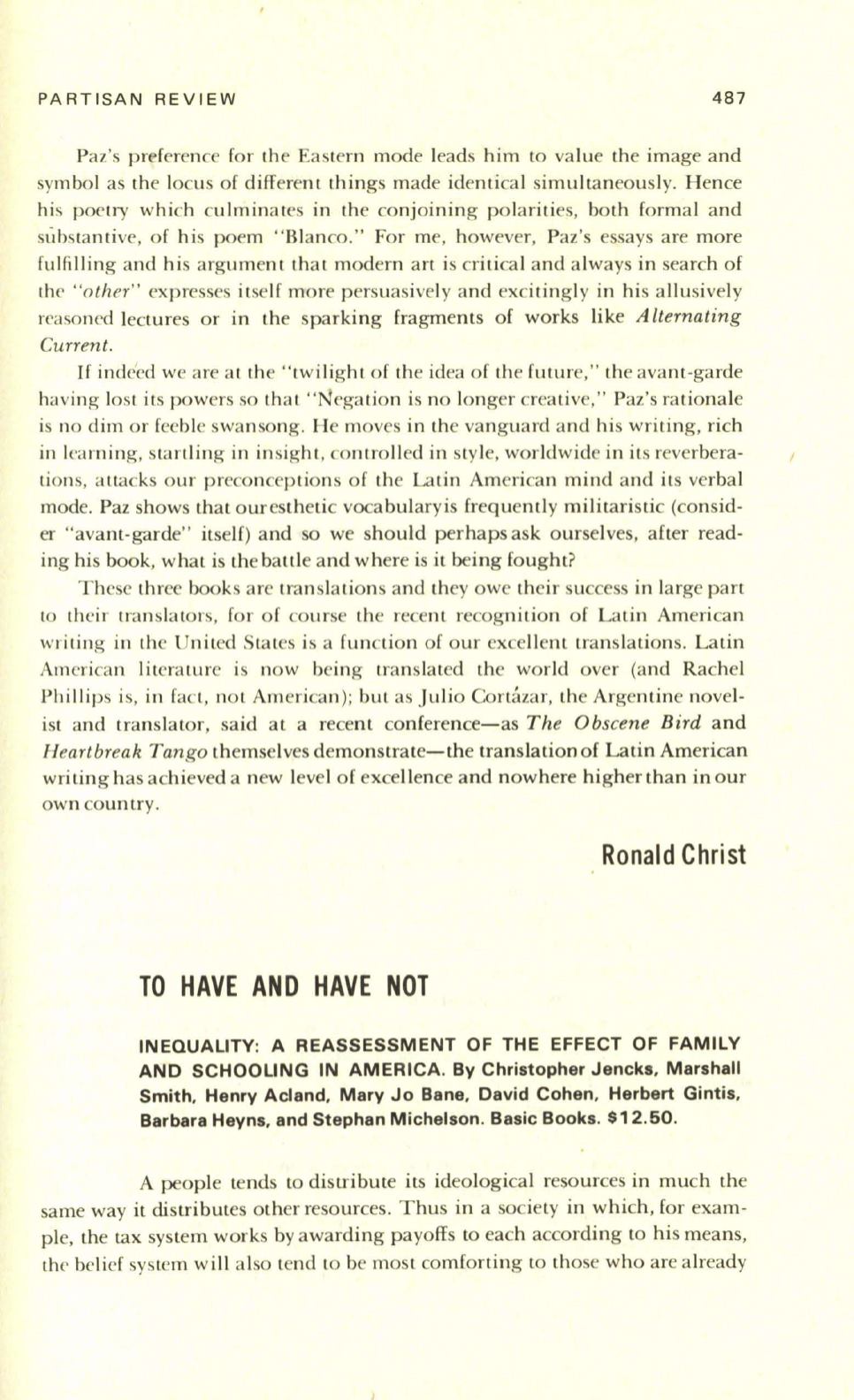
PARTISAN REVIEW
487
Paz's preference for the Eastern mode leads him to value the image and
symbol as the locus of different things made identica l simultaneously. Hence
hi s poetry which culmina tes in the conj oining polarities, bo th forma l and
sllbstantive, of his poem " Blanco." For me, however, Paz's essays are more
fulfilling and his argument th a t modern a rt is critica l and a lways in sea rch of
the
"other"
expresses itself mo re persuasively and excitingly in his a llusively
reCisoned lectures or in the sparking fragments of works like
Alternating
Curren t.
If
indeed we a re a t th e " twilight of the idea of the future," the avant-garde
hClv ing lost its powers so th a t "Nega tion is no longer crea tive," Paz's rationale
is no dim or feeble swan song. He moves in the vanguard and hi s writing, rich
in lea rning, sta rtling in in sight, controll ed in style, worldwide in its reverbera–
tions, a llacks our preconceptions o f the Latin American mind and its verbal
mode. Paz shows that ouresthetic vocabulary is frequently militaristic (consid–
er "avant-garde" itself) and so we should perhaps ask ourselves, after read–
ing his book, wha t is the ballie and where is it being fought?
These three books a re tran sla tion s and they owe their success in large pan
to their translators, for o f course the recent recognition of La tin American
writing in the United States is a functio n of our excell ent transla tions. La tin
American literature is now being translated the world over (and Rachel
Phillips is, in fact, no t American); but as Julio Conazar, the Argentine novel–
ist and translator, said at a recent conference-as
The Obscene Bird
and
Heartbreak Tan go
themselves demonstrate-the translation of Latin American
writing has achieved a new level of excellence and nowhere higher than in our
own country.
Ronald Christ
TO HAVE AND HAVE NOT
INEQUALITY: A REASSESSMENT OF THE EFFECT OF FAMILY
AND SCHOOLING IN AMERICA. By Christopher Jencks. Marshall
Smith. Henry Acland. Mary Jo Bane. David Cohen. Herbert Gintis.
Barbara Heyns. and Stephan Michelson. Basic Books.
$12.50.
A people tends to distribute its ideological resources in much the
same way it distributes other resources. Thus in a society in which , for exam–
ple, the tax system works by awarding payoffs to each according to hi s mea ns,
the belief sys tem wi ll also tend to be most comforting to those who a re already


